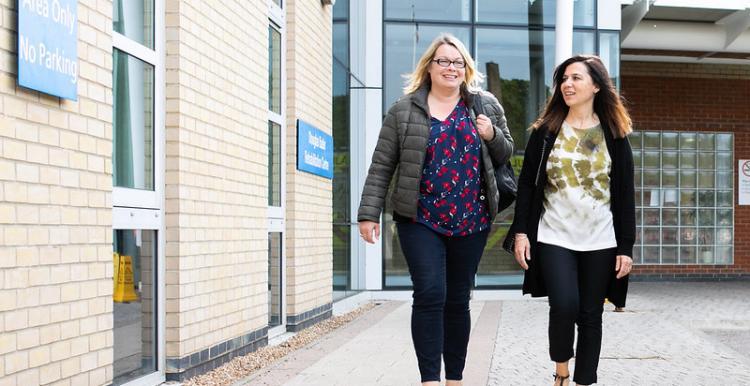What medical support are you entitled to if you’re new to the UK?

In need of urgent medical care?
If you urgently need medical help or advice but it’s not a life threatening situation call NHS 111 if you are living in England. If someone is seriously ill or injured and their life is at risk call 999.
What are my rights as a refugee when it comes to healthcare in the UK?
Refugees' and asylum seekers are entitled to NHS care. In all four nations of the UK, refugees and asylum seekers with an active application or appeal are fully entitled to free NHS care.
But let’s break this down a bit:
Pharmacies
Pharmacists can offer clinical advice and medicines for a range of minor illnesses, such as coughs, colds, sore throats, tummy trouble and aches and pains. The pharmacist will let you know if you need to visit a doctor or direct you to other healthcare professionals to make sure you get the help you need. You can also buy medicines for minor illnesses or first-aid supplies in a pharmacy or supermarket.
Dentists and Opticians
You’ll have to register for a Dentist or Optician. Here’s how:
But if you’re in pain, you should call 111 for Urgent Dental Care Services
GP practice or medical centre
A GP can offer medical advice, provide a diagnosis and prescribe medicines. They might be your first point of contact for many physical and mental health concerns. The GP practice is also responsible for coordinating and managing your long-term healthcare and they can refer you if you need more specialised hospital services.
Everyone has the right to register for a GP. You don’t need proof of address, immigration status, ID or an NHS number.
Find your nearest GP practice and register online.
If you are having difficulty registering with a GP you can:
• Download a GP Access Card and show this to the GP receptionist
• Phone NHS England (0300 311 22 33 ) or Doctors of the World (0808 1647 686) for help
Community health services (Pregnancy, child health, contraception services)
Some health services are accessed in the community, and not in hospitals. These include mental health, child health and antenatal services and sexual health and family planning clinics. Find out more about community health services and what they look like.
Walk-in or Urgent Treatment Centres (Minor injuries or urgent medical advice)
If you need urgent medical care for minor injuries such as cuts, sprains and small fractures, or urgent medical advice, you can directly go to a walk-in or urgent care Centre without an appointment. These Centres are usually open during daytime hours.
Emergency services (Medical emergency or life-threatening situation)
Call 999 if someone is seriously ill or injured and their life is at risk. The telephone operator will advise you what to do or where to go next. An ambulance may be sent to provide treatment or transport the patient to hospital. Hospital Accident and Emergency (A&E) departments are open 24 hours every day of the year. You can access these services directly and without an appointment.
Emergency mental health (Suicidal thoughts or serious self-harm)
If you have seriously harmed yourself or are about to do so, call 999 for an ambulance or go straight to A&E. If you are thinking about suicide, talk to someone at the Samaritans by calling 116 123.
Welcome: a guide for new refugees
A guide for adults who have been granted asylum in England to access public services and make the most of the opportunities in the UK.